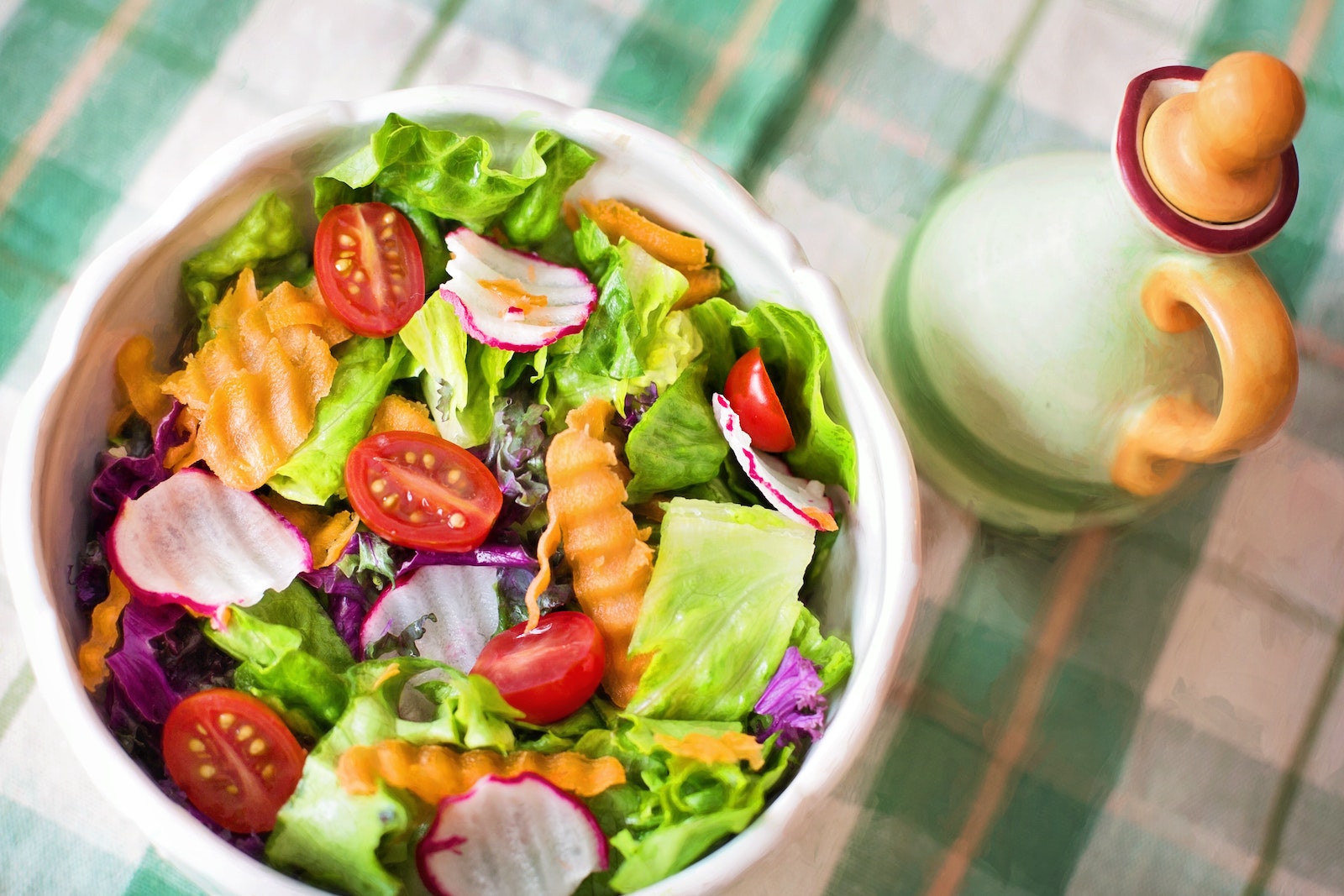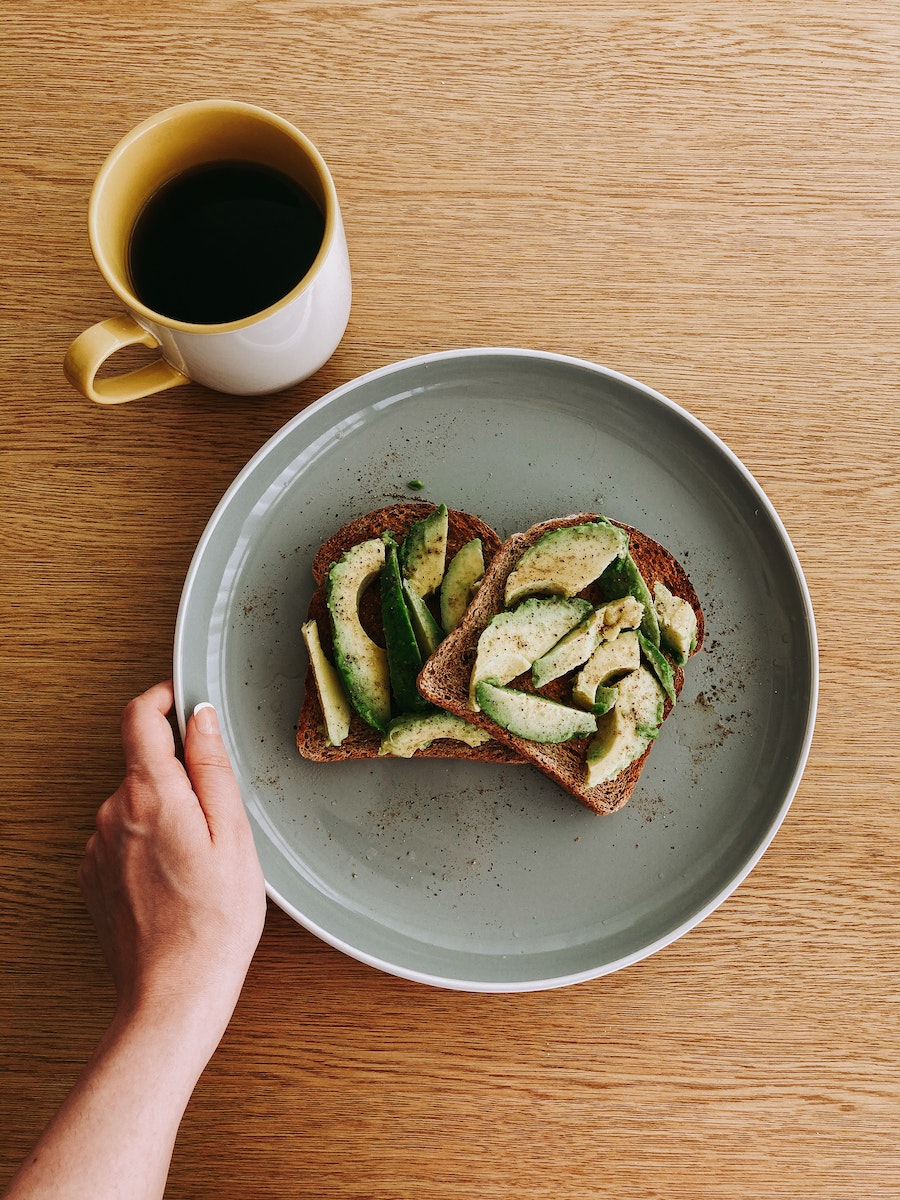Hey there, fellow freedom seekers! Are you tired of feeling trapped by your diet? Do you want to break free from the chains of traditional meal plans and still see results? Well, have no fear because I’ve got a game-changing solution for you – the vegetarian keto diet.
Now, before you roll your eyes and dismiss this as just another fad diet, hear me out. The benefits of combining these two dietary lifestyles are truly amazing. From weight loss to improved mental clarity, a vegetarian keto diet can provide numerous advantages that will make you wonder why you didn’t try it sooner.
So sit back, relax, and let me walk you through the top 5 benefits of embracing this revolutionary approach to eating.
What Is A Vegetarian Keto Diet?

Are you someone who wants to maintain a healthy lifestyle while also being mindful of the environment? If so, then a vegetarian keto diet could be perfect for you!
A vegetarian low-carb diet focuses on plant-based foods that are high in healthy fats and protein. It’s an excellent way to reduce your carb intake without sacrificing flavor or variety. The plant-based keto diet is similar to traditional ketogenic diets but with fewer animal products. Instead, it emphasizes nutrient-dense vegetables, nuts, seeds, and legumes as primary sources of energy.
By following this eating pattern, you can achieve ketosis – a metabolic state where your body burns fat instead of carbs for fuel. One significant benefit of a vegetarian keto diet is its potential health benefits. Studies have shown that reducing carbohydrate intake and increasing healthy fats can lead to improved blood sugar control, weight loss, and reduced risk factors for heart disease.
Additionally, incorporating plant-based protein sources into your meals can help build muscle mass and support overall health. Not only is this type of diet beneficial for your health; it’s also more sustainable for the planet since it reduces reliance on animal agriculture.
Benefits Of A Vegetarian Keto Diet

Now that we know what a vegetarian keto diet is, let’s talk about the benefits.
1. Improved Weight Management
A vegetarian keto diet may help reduce appetite and cravings due to its high fat and moderate protein content, which can promote feelings of fullness and satiety. Additionally, the ketogenic state induced by the diet may reduce the production of hunger hormones, such as ghrelin, leading to decreased appetite and food intake.
The low-carbohydrate and high-fat nature of a vegetarian keto diet promotes the breakdown of stored body fat for energy. This process, known as ketosis, can lead to increased fat burning and weight loss.
2. Lowered Risk of Chronic Diseases
A vegetarian keto diet may help improve insulin sensitivity and blood sugar control, reducing the risk of developing type 2 diabetes. The diet’s low-carbohydrate content can help regulate blood sugar levels and reduce insulin resistance.
A vegetarian keto diet may help improve cardiovascular health by lowering triglyceride and cholesterol levels. The diet’s high-fat content can also help increase levels of HDL, or “good” cholesterol, which can reduce the risk of heart disease.
Studies have shown that a vegetarian keto diet may help reduce the risk of certain types of cancer, such as breast and colon cancer. The diet’s high fiber and nutrient-rich content can help reduce inflammation and oxidative stress, which are risk factors for cancer.
3. Improved Mental Health
A vegetarian keto diet may help improve mood by increasing the production of neurotransmitters, such as serotonin and dopamine, which are associated with feelings of happiness and well-being.
The ketogenic state induced by a vegetarian keto diet may help reduce anxiety and depression by promoting the production of GABA, a neurotransmitter that can reduce anxiety and promote relaxation.
4. Increased Energy Levels
The vegetarian keto diet promotes the production of ketones, which are a more efficient source of energy for the body than glucose. This can lead to increased energy levels and improved physical performance.
The ketogenic state induced by the diet may also help improve focus and mental clarity by promoting the production of ketones, which can provide a steady source of energy for the brain.
5. Improved Gut Health
A vegetarian keto diet may help reduce inflammation in the gut by promoting the consumption of nutrient-rich, anti-inflammatory foods such as vegetables and healthy fats.
The high fiber content of the diet can also help improve digestion by promoting regular bowel movements and reducing the risk of constipation.
Moving forward into our next section, it’s important to also consider any potential nutrient deficiencies or risks associated with this way of eating.
Nutrient Deficiencies And Risks Of A Vegetarian Keto Diet
To be frank, there are some nutrient deficiencies and risks associated with a vegetarian keto diet. However, with proper planning and attention to detail, these can easily be mitigated.
One of the main concerns is getting enough protein without relying on animal sources. But fear not! There are plenty of plant-based protein sources that will help you meet your macros while keeping things keto-friendly. Some excellent options include tofu, tempeh, seitan, nuts and seeds, and legumes like lentils or chickpeas.
It’s also important to supplement with nutrients like vitamin B12 and iron which may be lacking in a purely plant-based diet. If you’re still concerned about nutrient deficiencies, consider taking vegetarian keto supplements to fill any gaps. These might include omega-3 fatty acids from algae oil or specific vitamins and minerals designed for those following a vegan or vegetarian diet.
With a little bit of extra effort, it’s possible to stay healthy and energized on a vegetarian keto diet. As we move forward in our exploration of the world of the vegetarian keto diet, let’s take a closer look at what foods we should eat – and avoid – when pursuing this lifestyle. By making smart choices and being mindful of our nutritional needs, we can enjoy all the benefits this way of eating has to offer while minimizing any potential risks along the way.
Foods To Eat And Avoid On A Vegetarian Keto Diet
While there are some potential risks and nutrient deficiencies to be aware of with a vegetarian keto diet, the benefits can outweigh these concerns for many.
In fact, here are the top 5 advantages of following this type of diet:
- Weight loss: By cutting out carbs and focusing on healthy fats and protein sources, it’s easier to maintain a calorie deficit and shed excess weight.
- Improved blood sugar control: Since you’re not consuming high-carb foods that can cause spikes in blood sugar levels, a vegetarian low-carb or plant-based keto diet may be beneficial for individuals with diabetes or insulin resistance.
- Increased energy: Many people report feeling more alert and energized when they start eating more nutrient-rich vegetarian keto foods like leafy greens, nuts, seeds, and avocados.
In order to get the most out of your plant-based keto diet, it’s important to plan your meals carefully. This means ensuring that you’re getting enough protein from plant-based protein sources like tofu, tempeh, legumes, and seitan while also incorporating plenty of healthy fats (like coconut oil and olive oil) into your meals.
To make meal planning easy, consider creating a vegetarian keto meal plan for yourself each week. You can find recipes online or in cookbooks specifically designed for this type of diet.
And don’t forget about prepping ahead! Spending an hour or two on Sunday chopping veggies, cooking grains or proteins in bulk, and portioning out snacks can save you time throughout the busy workweek.
Meal Planning And Preparation For A Vegetarian Keto Diet

As I started my journey towards a vegetarian keto diet, meal planning and preparation became crucial in achieving success. It was important to shift from processed foods to natural plant-based sources of protein and other essential nutrients.
Creating a well-rounded vegetarian keto meal plan required researching low-carb vegetarian recipes that were both delicious and filling. One challenge I faced initially was finding plant-based protein sources that fit within the guidelines of a low-carb diet. However, with some experimentation, I discovered a variety of options such as tofu, tempeh, nuts, seeds, and legumes.
Incorporating these into my meals not only provided the necessary protein but also helped me feel more satisfied after eating. When it comes to preparing meals on a vegetarian keto diet, organization is key. Setting aside time each week to plan out meals and grocery shop helps ensure that there are always healthy options available.
With practice, meal planning and preparation becomes second nature and results in feeling better physically while enjoying delicious food choices. As I continued on this path, I began to realize how much impact our dietary choices have on the environment and animal welfare.
Understanding where our food comes from and choosing sustainable options can make a positive difference for future generations.
Sustainability And Ethics Of A Vegetarian Keto Diet

Now that we’ve discussed meal planning and preparation for a vegetarian keto diet, let’s talk about the sustainability and ethics of this lifestyle.
As someone who follows a plant-based keto diet myself, I can say with confidence that it has truly transformed my life in more ways than one.
One of the biggest benefits of a balanced vegetarian keto diet is the positive impact it has on our environment. By choosing to focus on whole foods like vegetables, nuts, seeds, and healthy fats instead of meat and dairy products, we are reducing our carbon footprint and helping to combat climate change.
Additionally, many people find that they have more energy and feel better overall when eating this way.
Another aspect to consider is the ethical implications of consuming animal products. While everyone has their own beliefs and values around this topic, for me personally it felt important to align my dietary choices with my desire to reduce harm towards animals.
Choosing a vegan or vegetarian keto diet allows us to live in alignment with these values while still nourishing our bodies with delicious, nutrient-dense meals.
In conclusion (just kidding!), there are so many reasons why someone might choose to adopt a plant-based keto diet – from health benefits to environmental concerns to ethical considerations.
Ultimately, it comes down to what feels right for you as an individual. For me personally, I am constantly inspired by the freedom that this way of eating provides – both in terms of creativity in the kitchen and how good I feel physically and mentally day after day.
Key Takeaways
- A vegetarian keto diet can help with weight loss by promoting fat burning and reducing calorie intake.
- This diet may also improve insulin sensitivity, which can reduce the risk of developing type 2 diabetes and other chronic diseases.
- Vegetarian keto diets can be high in fiber, which is important for maintaining a healthy digestive system and reducing the risk of certain cancers.
- A vegetarian keto diet may also lower cholesterol levels, which can decrease the risk of heart disease.
- However, it is important to carefully plan a vegetarian keto diet to ensure that it includes all necessary nutrients and does not lead to deficiencies. Consulting with a healthcare professional or registered dietitian is recommended.
Useful Table: Benefits Of A Vegetarian Keto Diet
| Benefit | Description |
|---|---|
| Improved Weight Management | |
| Reduced Appetite and Cravings | A vegetarian keto diet may reduce hunger and cravings, leading to a decrease in calorie intake and weight loss. |
| Increased Fat Burning | The body may enter a state of ketosis, where it burns fat for fuel instead of carbohydrates, leading to weight loss. |
| Lowered Risk of Chronic Diseases | |
| Reduced Risk of Diabetes | A vegetarian keto diet may improve insulin sensitivity and blood sugar control, reducing the risk of type 2 diabetes. |
| Improved Cardiovascular Health | This diet may reduce cholesterol levels and blood pressure, decreasing the risk of heart disease. |
| Reduced Risk of Cancer | High fiber intake in a vegetarian keto diet can help prevent certain types of cancer, such as colorectal cancer. |
| Improved Mental Health | |
| Improved Mood | This diet may improve mood and reduce symptoms of depression and anxiety. |
| Reduced Anxiety and Depression | The increase in healthy fats and nutrients in this diet can support brain health and reduce symptoms of anxiety and depression. |
| Increased Energy Levels | |
| Ketones as a Source of Energy | The body uses ketones for energy, which can provide a more sustained and stable source of energy compared to glucose. |
| Improved Focus and Mental Clarity | The increase in ketones in the brain may improve cognitive function and mental clarity. |
| Improved Gut Health | |
| Reduced Inflammation | A vegetarian keto diet may reduce inflammation in the body, promoting gut health and reducing the risk of chronic diseases. |
| Improved Digestion | This diet is high in fiber, which promotes healthy digestion and may reduce the risk of digestive disorders. |
Frequently Asked Questions (FAQs)
1. Can A Vegetarian Keto Diet Provide Enough Protein For Muscle Building?
So, you’re interested in a vegetarian keto diet but concerned about whether it can provide enough protein for muscle building? You’re not alone.
As someone who values their freedom to choose what they eat and how they fuel their body, this is an important consideration.
The good news is that with careful planning and attention to nutrient-dense sources of plant-based proteins such as tofu, tempeh, lentils, nuts, seeds, and leafy greens like kale and spinach, you can absolutely meet your daily protein needs on a vegetarian keto diet.
Plus, by avoiding animal products, you’ll be doing your part to reduce your environmental impact while still achieving your health goals.
2. Is It Possible To Follow A Vegetarian Keto Diet While Also Being Gluten-Free?
I recently found myself wondering if it’s possible to follow a vegetarian keto diet while also being gluten-free. After some research, I discovered that yes, it is absolutely doable!
In fact, many people have successfully combined these two dietary lifestyles and reported feeling better than ever before. Of course, like with any new way of eating, there may be an adjustment period as you figure out what foods work best for your body.
But once you get the hang of it, you’ll feel free from the constraints of traditional diets and empowered by your ability to nourish yourself in a way that works uniquely for you.
3. How Does A Vegetarian Keto Diet Affect Cholesterol Levels?
Hey there! If you’re considering a vegetarian keto diet, you might be wondering how it affects your cholesterol levels.
Well, I have good news for you – studies have shown that this type of diet can actually help improve your cholesterol profile by lowering total cholesterol and LDL (the ‘bad’ kind). Plus, it’s a great way to get in all those healthy fats without relying on animal products.
And speaking of health benefits, did you know that following a vegetarian keto diet has been linked to improved brain function, reduced inflammation, and better blood sugar control? It’s true!
So if you’re looking for a delicious and nutritious way to take control of your health, why not give it a try?
4. Are There Any Specific Supplements That Are Recommended For A Vegetarian Keto Diet?
So you’ve decided to try out a vegetarian keto diet – congrats! But, as with any specialized diet, it’s important to make sure your body is getting all the nutrients it needs.
While there isn’t necessarily one supplement that’s required for this type of eating plan, there are a few options that can be especially helpful for vegetarians on keto.
One of these is omega-3 fatty acids, which are essential for brain and heart health but can be difficult to get enough of without fish in your diet.
Another is magnesium, which plays a role in everything from muscle function to bone density and may help alleviate some common side effects of ketosis like constipation or muscle cramps.
As always, it’s best to talk to a healthcare professional before starting any new supplement regimen – but with these two picks under your belt (literally), you’ll be well on your way to thriving on veggie-based keto goodness.
5. Can A Vegetarian Keto Diet Be Sustainable And Affordable In The Long-Term?
I’ve been following a vegetarian keto diet for quite some time now, and I can honestly say that it’s sustainable and affordable in the long-term.
I used to think that this type of eating plan would cost me an arm and a leg or leave me feeling hungry all the time, but I was wrong!
By focusing on plant-based protein sources like tofu, tempeh, nuts, and seeds, I’m able to get all the nutrients and energy my body needs without breaking the bank.
Plus, with so many delicious low-carb veggies out there (hello cauliflower!), mealtime never gets boring.
So if you’re wondering whether a vegetarian keto lifestyle is right for you, don’t worry about whether it’s doable – just give it a try!
Final Thought
A vegetarian keto diet can offer numerous benefits for those who are willing to try it out. From weight loss and improved mental clarity to better blood sugar control and increased energy levels, this way of eating has the potential to transform your life in more ways than one.
As someone who struggled with digestive issues and low energy levels for years, I decided to give the vegetarian keto diet a chance. And let me tell you, it was like hitting the reset button on my body.
It felt like I had been living in a fog for so long, but now everything is clear and vibrant again. So if you’re looking for a sustainable way to improve your health and wellbeing, consider trying out a vegetarian keto diet.
Whether you’re gluten-free or concerned about getting enough protein, there are plenty of options available that can help support your goals. With some creativity and dedication, you’ll be amazed at what you can achieve!




Leave a Reply